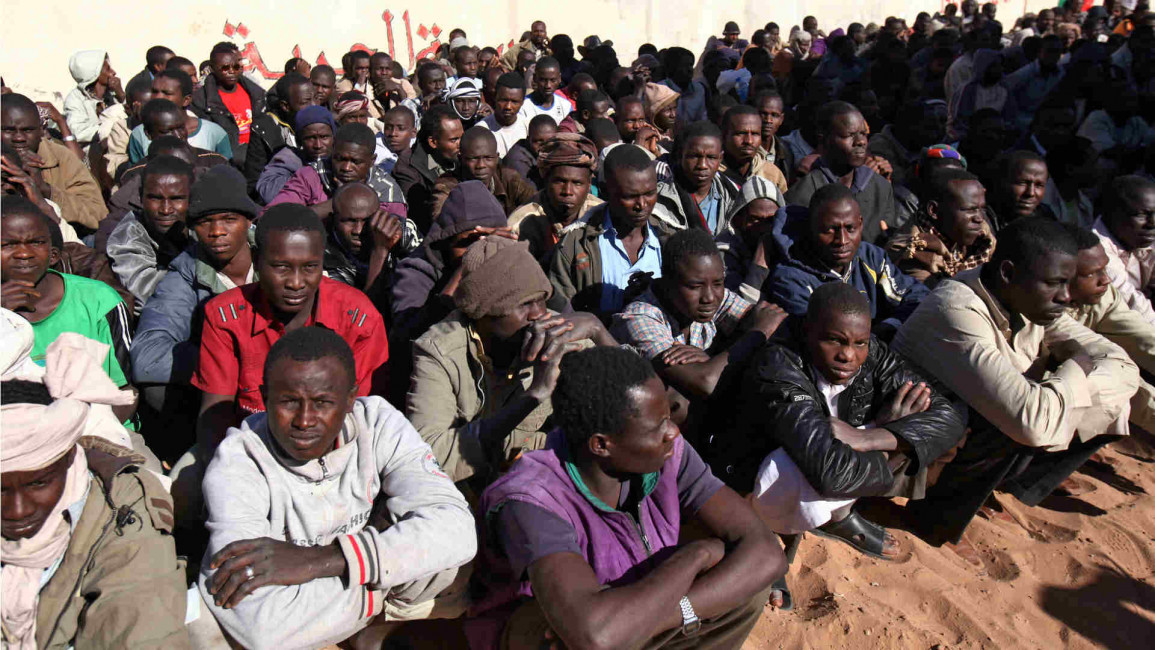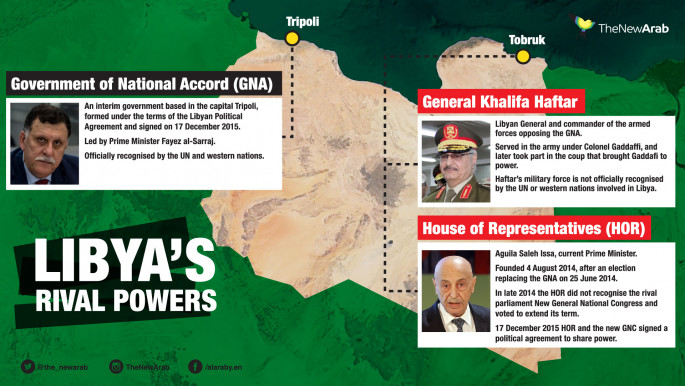East Libya closes Sudan consulate over alleged people smuggling practices
East Libya closes Sudan consulate over alleged people smuggling practices
The east Libyan government closed the Sudanese consulate in the south-eastern city of Kufra, a major smuggling route for migrants.
2 min read
Thousands of migrants are smuggled via Kufra every month [AFP]
Sudan has said it "regrets" a decision by the east Libyan authority - headed by Abdullah al-Thinni and backed by General Khalifa Haftar - to close a diplomatic mission over alleged people trafficking practices.
Khartoum's foreign ministry published a statement on Wednesday claiming it would "further investigate" claims of malpractice by Sudan's Consul-General Salah Ahmed Eidin the south-eastern city of Kufra and 11 diplomatic workers at the consulate.
The statement said it "regrets the decision to close the Sudanese consulate in Kufra on the basis of unfounded accusations that some of the consulate staff have exceeded their normal duties".
The east Libyan foreign ministry said on Wednesday the reason for the closure was due to "unconventional" practices by consular staff.
Relations between Sudan and the east Libyan government have been frayed since the latter was expelled from Libya's capital Tripoli by the pro-Islamist militia, Libya Dawn.
The eastern-based Thinni government has accused Sudan of selling arms to rival Libya Dawn, which Khartoum has denied.
Sudan also has an embassy in Tripoli and a consulate general in Benghazi which were not affected by the decision.
Kufra is considered a stopping point for people smugglers, transporting migrants between Sudan and the Libyan ports in the north.
Thousands of Africans have died attempting the perilous journey to Europe across the Mediterranean Sea.
This constant flow of migrants from Libya is a major issue for European governments and was raised at a France-brokered series of peace talks this week.
Kufra is considered a stopping point for people smugglers, transporting migrants between Sudan and the Libyan ports in the north.
Thousands of Africans have died attempting the perilous journey to Europe across the Mediterranean Sea.
This constant flow of migrants from Libya is a major issue for European governments and was raised at a France-brokered series of peace talks this week.
The east Libyan government was represented by General Haftar while the UN-backed President Fayyez al-Serraj represented Tripoli at the talks, concluding on Tuesday.
Rome sent missives to France's President Macron during the talks, warning that the meeting "legitimised" Haftar, who is viewed by many as a potential strongman dictator.
He is backed by supporters of deposed Libyan dictator, Muammar al-Gaddafi.
Haftar in December called on his forces to prepare for an offensive to "liberate" Tripoli and has fought government forces in the country's south.
East Libyan forces are supported by Egypt and the United Arab Emirates through bombing campaigns and the illegal sale of arms - some originating from Israel.
Haftar's continuous battle against the country's Islamists is considered in line with the anti-Muslim Brotherhood policies of the UAE and Egypt - namely to eliminate political Islam from the region.



![President Pezeshkian has denounced Israel's attacks on Lebanon [Getty]](/sites/default/files/styles/image_684x385/public/2173482924.jpeg?h=a5f2f23a&itok=q3evVtko)



 Follow the Middle East's top stories in English at The New Arab on Google News
Follow the Middle East's top stories in English at The New Arab on Google News


